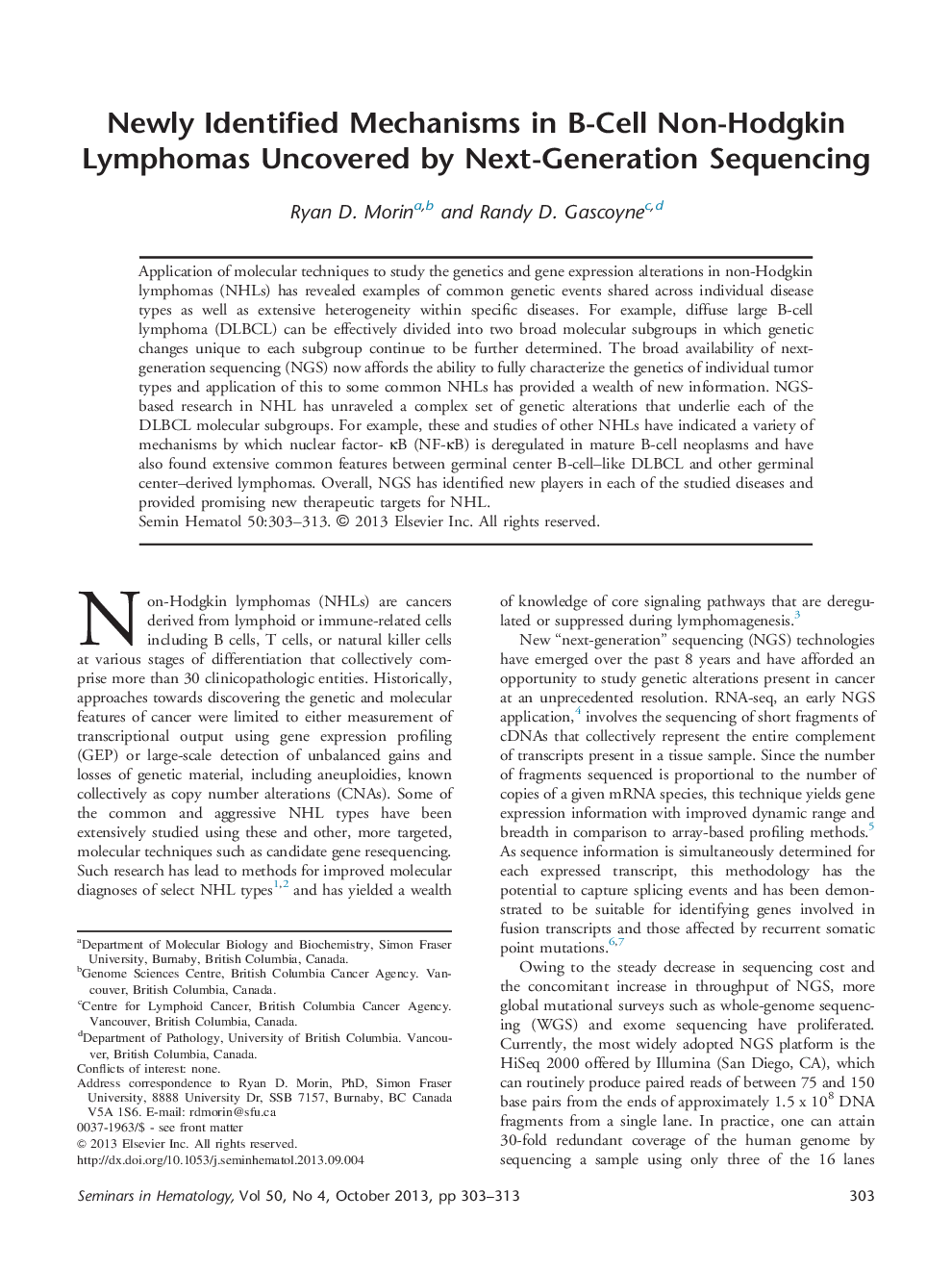| Article ID | Journal | Published Year | Pages | File Type |
|---|---|---|---|---|
| 3333557 | Seminars in Hematology | 2013 | 11 Pages |
Application of molecular techniques to study the genetics and gene expression alterations in non-Hodgkin lymphomas (NHLs) has revealed examples of common genetic events shared across individual disease types as well as extensive heterogeneity within specific diseases. For example, diffuse large B-cell lymphoma (DLBCL) can be effectively divided into two broad molecular subgroups in which genetic changes unique to each subgroup continue to be further determined. The broad availability of next-generation sequencing (NGS) now affords the ability to fully characterize the genetics of individual tumor types and application of this to some common NHLs has provided a wealth of new information. NGS-based research in NHL has unraveled a complex set of genetic alterations that underlie each of the DLBCL molecular subgroups. For example, these and studies of other NHLs have indicated a variety of mechanisms by which nuclear factor- κB (NF-κB) is deregulated in mature B-cell neoplasms and have also found extensive common features between germinal center B-cell–like DLBCL and other germinal center–derived lymphomas. Overall, NGS has identified new players in each of the studied diseases and provided promising new therapeutic targets for NHL.
